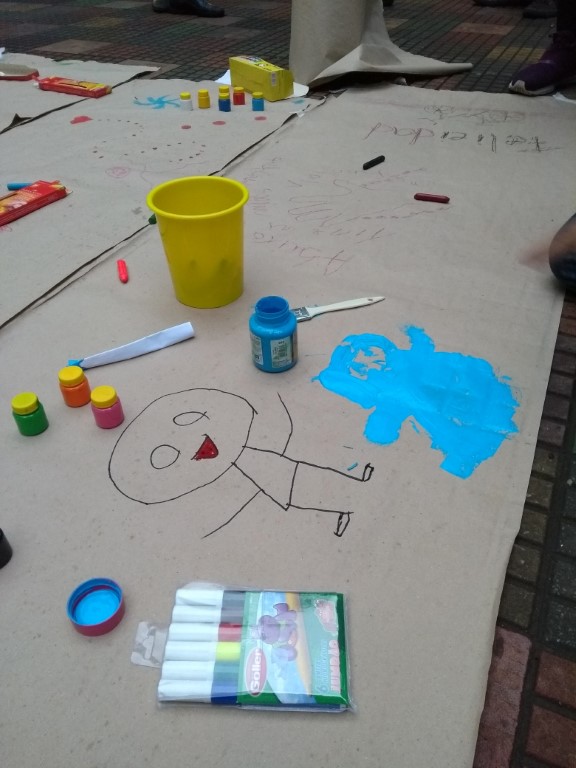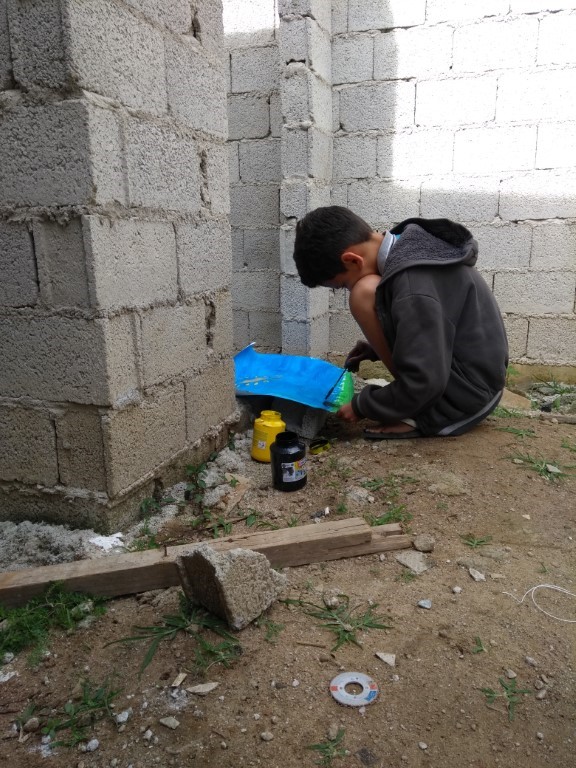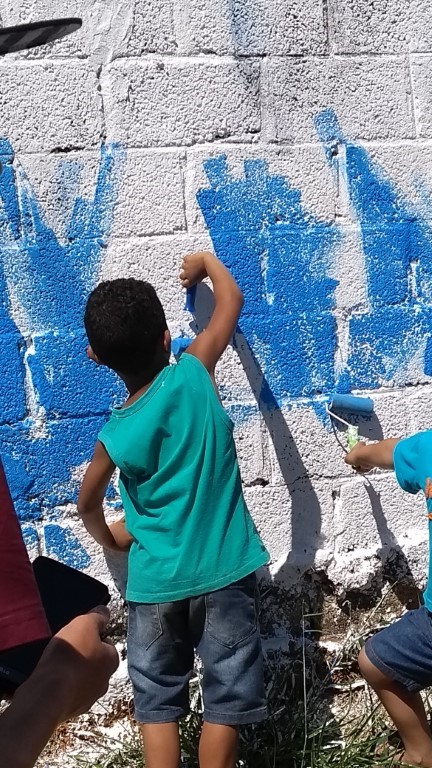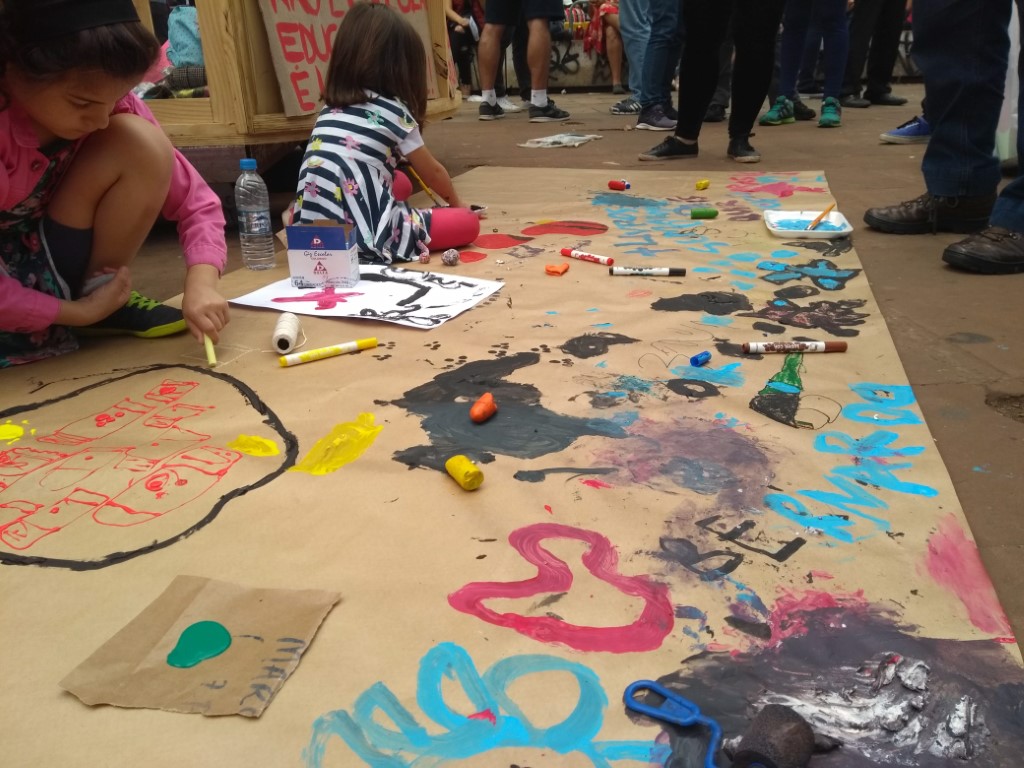
lit. inmovements
"emmovimentos" (lit. inmovements)
breve manifesto em 6 atos
Podcast 44 | “em movimentos” da virada – Marcia Gobbi
Podcast 43 | Uma janela para a Pandemia – Renata Facury
Podcast 42 | O brincar: “ponte de esperança” e de vida – Maria Walburga dos Santos
Podcast 41 | “Fazer nada” e “fazer bagunça” no cotidiano de bebês – Gabriela Tebet
Podcast 40 | Educação infantil, relações de gênero e políticas públicas – Carolina Alvarenga
Podcast 39 | Educação inclusiva é direito – Liliane Garcez
Podcast 38 | Caminhar, andarilhar com as crianças pela cidade – Dilma Ângela da Silva
Podcast 37 | Depois de virar lei, tem outras lutas: desigualdades escolares no Brasil-Fabiana Jardim
(Português do Brasil) Podcast 36 | Formação docente, raça e infância – Lucimar Rosa Dias
(Português do Brasil) Podcast 35 | Ditadura e infância – Amelinha Teles
Podcast 34 | Crianças e famílias – Ana Paula Gibim
Podcast 33 | Resistência Feminista em tempos de pandemia – Bel Mello
Podcast 32 | Outras reflexões e desafios. Por que não ouvir as crianças na cidade? – Paula M Vicente
Podcast 31 | Mulheres e direito de decidir: sobre o corpo e a vida – Sonia Coelho
The podcast “emmovimentos” (lit. inmovements) developed by the research and study group Crianças, práticas urbanas, gênero e imagem (lit. Children, urban practices, gender and image), coordinated by professor of FE-USP (School Of Education – University of São Paulo) Márcia Gobbi, was born during the COVID-19 pandemic. The emergence of this disease widened many historical social gaps. We are seeing in Brazil the increase of domestic violence against women and children, high unemployment rates, lack of social security progams and presevation of workers rights, in addition to a decrease in public health and education programs and increase in the number of people bellow the poverty line, to say the least that is happening today. These deep changes impose reflections and practices: how is it like to think and act with women and children during the pandemic? How is it like to be children and women in these conditions? If something changed, what changed? This demands not only to think about the question, but also the execution of conjoined actions whose goal is to change the current state of things. The emmovimentos is a podcast that expresses voices and thoughts of women, which gives it, and those who listen to it, the possibility of an unique understanding of certain topics from their point of view. It gathered, and still gathers, many women that, kindly, contributed presenting and creating thoughts about various topics aggravated by the pandemic like: race, gender, childhood, city, urban art, social class and ethnicity. These are questions approached by female researchers and professors, and female primary and secondary teacher-researchers that put in dialogue their research themes articulating them with the pandemic, before and during this period. There are 43 podcasts that bring the perspective of women to the comprehension of this time, adding-up to the perspectives of other social groups. We invite you to listen and unravel the reflections presented and many possible others, to thicken our comprehensions and daily fights during and after the pandemic.
“coletivos emmovimentos” (lit. collectives inmovements)
a cidade é muito
Podcast 18 | Infância no coletivo: santo amaro e região – Telma Rocha
Podcast 17 | Coletivo Paulo Freire: fortalecendo sonhos – Cristina Pires
(Português do Brasil) Podcast 16 | Juntas na luta – Sheyla Melo
Podcast 15 | A efervescência poética do sarau da Cooperifa – Lu Sousa
(Português do Brasil) Podcast 14 | Fortificando raízes – Coletivo Baobá, fortificando raízes
(Português do Brasil) Podcast 13 |Coletivo parques da resistência:lutando para transformar escolas em quintais da infância
Podcast 12 | A criança humaniza a cidade – Vanessa de Oliveira Santos
Podcast 11 | Famílias na escola: uma experiência democrática – Luana Copini
Podcast 10 | Fica Quilombaque – Tata
(Português do Brasil) Podcast 09 | Ocupar a cidade – Solange Amorim
Podcast 08 | Mulheres do GAU e o plantio do comum | Parte 2 – Helena
Podcast 07 | Mulheres do GAU e o plantio do comum – Vilma Martins
Podcast 06 | Arte na Brasa – Sonia Bischain
Podcast 05 | Poéticas periféricas – Suzi Soares
The “emmovimentos” (lit. inmovements) that was born during the COVID-19 pandemic suffered transformations throughout 2020. Those changes are due to the observation of the strong presence of subjects and social practices that took our daily life. The presence of solidarity and politically inclined actions delimited in collectives formed by groups situated specially in the periphery of the city dramatically instigated the curiosity by the weight and strength that compose them in this historical moment. They are many collectives and they are spread out in lots of different regions. The term “coletivos” (lit. collectives) expose different ways of organization of social groups, especially peripheric, in the big cities, and show the construction of bonds that are made amidst the tragedy, bonds that gain ample and deep dimensions provoking the existence of other relationships more horizontally inclined that forge our vision about the world – where habit the multiplicity of thoughts – and about social and political organization. The choice of collectives happened because of the understanding that they are fundamental elements to comprehend different political actions currently happening in the city and in its peripheries, besides, they provoke us to think and design different futures due to their embrionary character that points towards change.
With that in mind and with the interest in learning with these communal groups and collectives, we created the “coletivos emmovimentos” (lit. collectives inmovements) as a unfolding of the podcast emmovimentos (lit. inmovements) brings the record of actions, voices and perspectives from what we can glimpse reflections and, who knows, with the perspective of women and children maybe we could find exits to this unequal form of living. Let’s listen and multiply good ideas?





